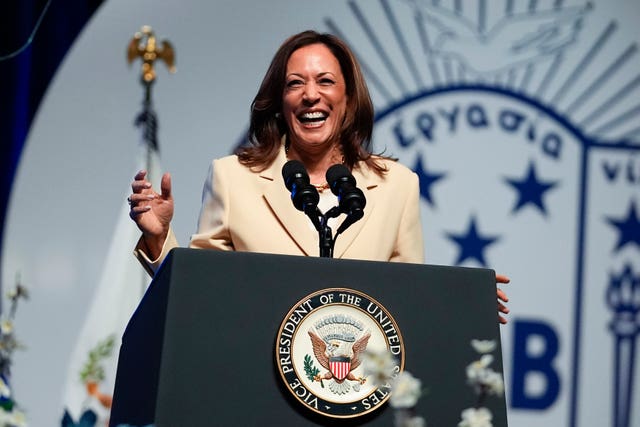President Joe Biden has said in an Oval Office address that he dropped his bid for re-election and threw his support behind Vice President Kamala Harris because “the defence of democracy is more important than any title”.
The address offered the public their first chance to hear directly from Mr Biden his rationale for dropping out of the 2024 presidential race after weeks of insisting he believed himself to be the best candidate to take on former president Donald Trump, whom he has called an existential threat to the nation’s democracy.
It also gave Mr Biden a chance to try to shape how history views his only term in office.
“Nothing, nothing can come in the way of saving our democracy. And that includes personal ambition.
“I revere this office, but I love my country more.”
Mr Biden’s candidacy faced a crisis of confidence from Democrats after his debate against Mr Trump nearly a month ago, where he spoke haltingly, appeared ashen and failed to rebut his predecessor’s attacks.
It sparked a mutiny within his party over not just whether he was capable of beating Mr Trump in November, but also whether at 81, he was still fit for the high-pressure job.
Mr Biden tried to outlast the scepticism and quell the concerns with interviews and tepid rallies, but the pressure to step aside only mounted from the party’s political elites and from ordinary voters.
The great thing about America is that here, kings and dictators do not rule.
The people do.
History is in your hands.
The power is in your hands.
The idea of America lies in your hands.
— Joe Biden (@JoeBiden) July 25, 2024
On Sunday afternoon, while isolating at his Rehoboth Beach, Delaware, home with Covid-19, Mr Biden finally bowed in a letter posted to his account on X announcing his decision to leave the race, followed by an endorsement of Ms Harris.
“I have decided the best way forward is to pass the torch to a new generation,” Mr Biden said, saying he wanted to make room for “fresh voices, yes, younger voices”.
He added: “That is the best way to unite our nation.”
Mr Biden pledged to remain focused on being president until his term expires at noon on January 20 2025, saying he would work to end the war between Israel and Hamas in Gaza, fight to boost government support to cure cancer and call for Supreme Court reform.
The president was hoping to use the address to outline the stakes in the election, which both Mr Biden and Ms Harris have framed as a choice between freedom and chaos, but he tried to steer clear of overt campaigning from his official office and never mentioned Mr Trump by name.

Mr Biden was also looking to make the case for his legacy of sweeping domestic legislation and the renewal of alliances abroad.
The way history will remember his time in office and his historic decision to step aside is intertwined with Ms Harris’ electoral result in November, particularly as the vice president runs tightly on the achievements of the Biden administration.
His advisers say he intends to hold campaign events and fundraisers benefiting Ms Harris, albeit at a far slower pace than if he had remained on the ballot himself.
Ms Harris’s advisers will ultimately have to decide how to deploy the president, whose popularity sagged as voters in both parties questioned his fitness for office.
Mr Biden, aides say, knows that if Ms Harris loses, he will be criticised for staying in the race too long and not giving her or another Democrat time to effectively mount a campaign against Mr Trump.
If she wins, she will ensure his policy victories are secured and expanded, and he will be remembered for a Washingtonian decision to step aside for the next generation of leadership.






